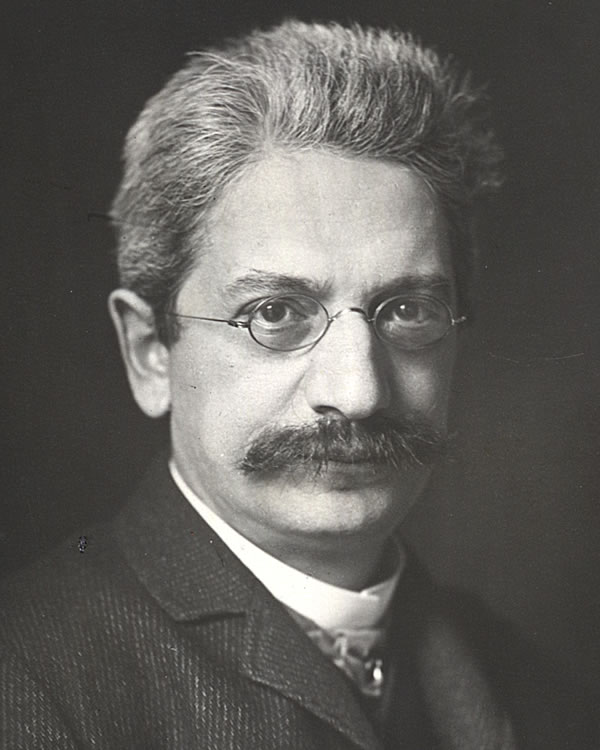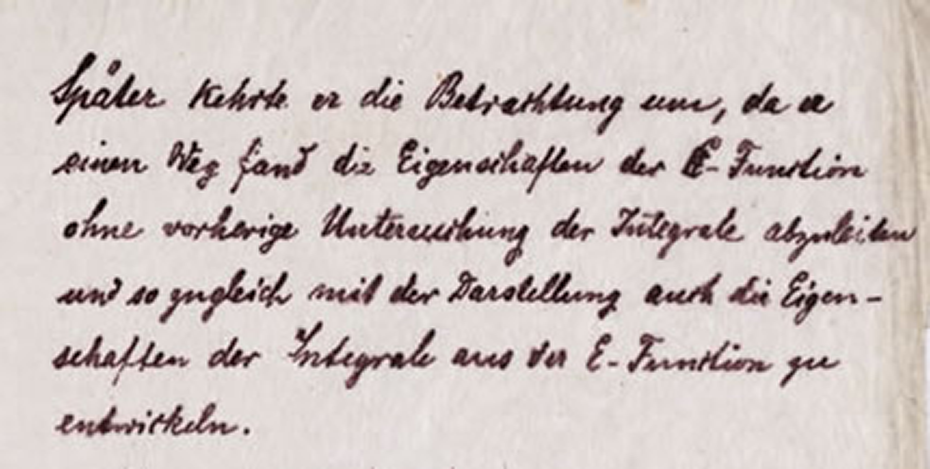Adolf Hurwitz (1859–1919)
Professor of higher mathematics at ETH Zurich

Adolf Hurwitz was born on 26 March 1859 in Hildesheim, where he attended the municipal Realgymnasium. His teacher Hermann Schubert spotted and encouraged his talent for mathematics.
In 1877 Hurwitz followed Schubert's advice and embarked on a degree in mathematics at the Königlich Bayerische Technische Hochschule in Munich, where Felix Klein became his main teacher.
Berlin and Göttingen
After Munich, Hurwitz spent three semesters at Humboldt University in Berlin.
When Klein accepted a position at the University of Leipzig, Hurwitz followed him in 1880 and completed a doctorate on the basics of an independent theory of elliptic modular functions and the theory of first-level multiplier equations under Klein the following year. He then switched to the University of Göttingen, where he completed a postdoctoral degree and was appointed as a private lecturer.
Frobenius' successor
In 1884 he received an associate professorship in Königsberg, where he met Hermann Minkowski and David Hilbert, who were doing doctorates there. In 1892 he was appointed as Ferdinand Georg Frobenius' successor at ETH Zurich, where he worked for twenty-seven years until his death. The majority of Hurwitz's lectures were initially on differential calculus. After Minkowski's departure, Hurwitz took over his post at the Department of Mathematics in 1902. His lectures now focused on algebra, the theory of functions, number theory and algebraic equations. The Hurwitz polynomial and the Hurwitz criterion from the stability theory of dynamical systems are named after him.
Adolf Hurwitz died in Zurich on 18 November 1919.
Manuscript
Holdings
The ETH Zurich University Archives personal papers of Adolf Hurwitz consist of his "mathematical diaries" and scientific correspondence. These sources are available online on the platform external page e-manuscripta.ch.
Works (selection)
- Grundlagen einer independenten Theorie der elliptischen Modulfunctionen und Theorie der Multiplicator-Gleichungen erster Stufe, 1881
- Über die Reihe neuer Funktionen, welche die absoluten Invarianten gewisser Gruppen ganzzahliger linearer Transformationen bilden, 1882
- Über Relationen zwischen Klassenanzahlen binärer quadratischer Formen von negativer Determinate, 1884
- Über die Kettenbrüche, deren Teilnenner arithmetische Reihen bilden, 1886
